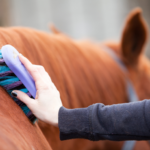The pressure washer is the perfect tool for cleaning exterior surfaces. It features a pump that pushes water at high pressure through a concentrating nozzle. The blast removes dirt and grime from surfaces like decks, driveways, and patios. It can also be used to clean various other items, such as outdoor garden tables and certain types of siding, in a fraction of the time that a scrub brush and hose would take.
Pressure Washer Types
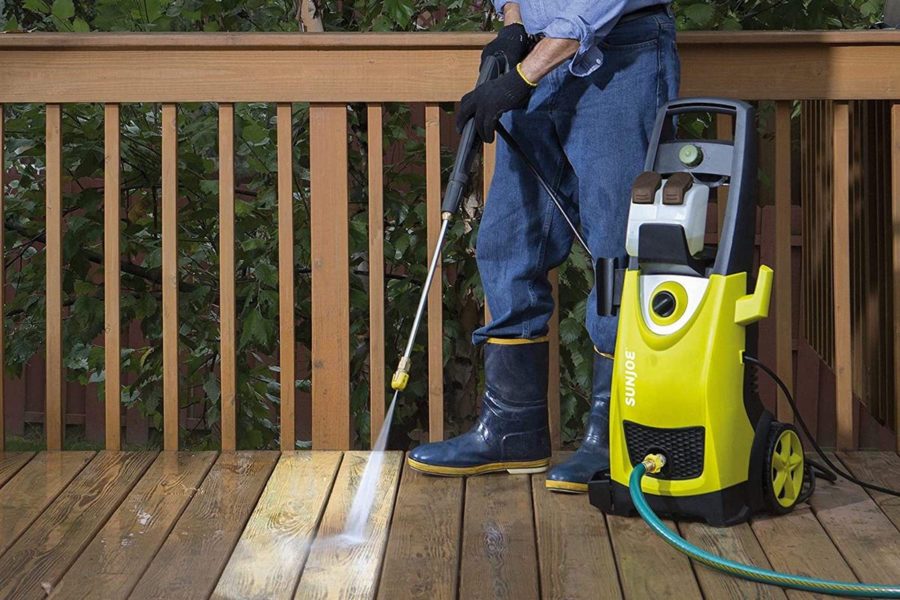
Electric-Powered Pressure Washers
This pressure washer is best for cleaning rather than stain removal on small decks and patios, outdoor furniture and other small jobs. A premium-quality electric pressure washer should be lightweight and quiet, require low maintenance, and create no exhaust emissions. They are easy to start and stop, and if brought indoors, they don’t need to be winterised. Moreover, their small size makes them easy to store.
However, cleaning takes longer with an electric pressure washer because it has lower water pressure. Instead of the metal fittings found on gas-powered models, wands and nozzles on electric pressure washers are made of less durable plastic. The length of your unit’s cord and hose determines the size of your cleaning area. Hoses are usually 25 to 30 feet long, with a 35-foot power cord.
Gas-Powered Pressure Washers
Gas pressure washers deliver water at a higher pressure. As a result, they clean large areas quickly without harsh chemicals, such as decks, siding, and driveways. Tough gunk, such as chewing gum and tree sap, is dispatched deftly with these gas-powered models. Because there is more pressure, a nozzle set at a wider angle cleans just as well as an electric model set at a narrower angle.
The gas-powered washers are noisy and heavy and need to be tuned up. Idling for long periods can cause the pump to overheat, potentially destroying the machine if the safety valve fails. Because gas machines should not be stored inside a home, pumps must be winterised with antifreeze in colder climates. When using a gas pressure washer, keep in mind that more power increases the risk of injury, as well as gouging, splintering, etching wooden surfaces, or chipping paint inadvertently.
Battery-Powered Pressure Washers
On the other hand, battery-powered washers are tools powered by a lithium-ion battery and provide a more powerful alternative to cleaning with a standard garden hose. Most don’t generate a lot of pressure, so they’re better for cleaning jobs that don’t require a lot of force, like washing a car. These tools’ batteries can sometimes be used to power other devices from the same manufacturer, such as cordless drills.
However, battery-powered pressure washers are no substitute for a full-sized model when it comes to deep cleaning. Pressure is typically around 500 pounds per square inch, compared to 1,000 to 2,300 pounds per square inch for corded electrics; some gas models can even produce up to 3,000 pounds per square inch.
Pressure Washer Grades
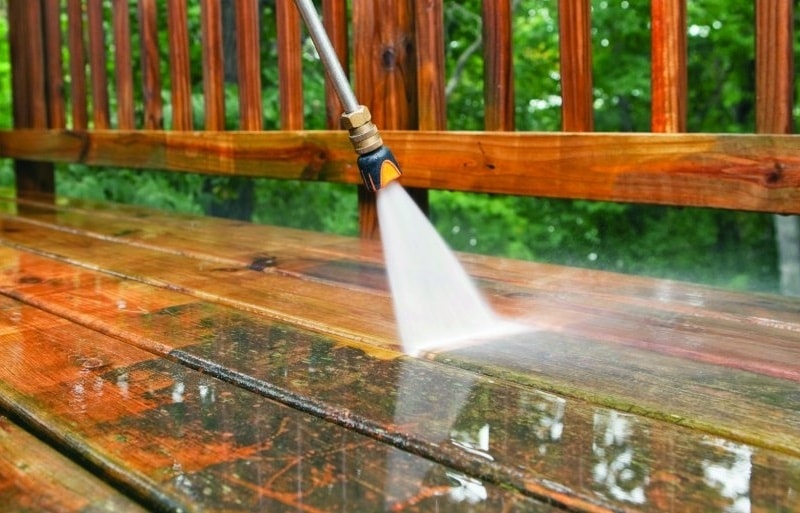
Pressure Washers for Homeowners
You don’t have to be a professional contractor to take pride in maintaining the appearance of your home and garden. Consumer-grade pressure washers are inexpensive and designed for the do-it-yourselfer. You can opt between electric and gas-powered models. The entry-level washers usually feature consumer-grade engines and pumps. These units aren’t meant to be used every day but rather for the homeowner who wants to wash their car once a week or perform light maintenance on their driveway, sidewalk, siding, and fences, among other things.
Pressure Washers for Professionals
Semi-professional pressure washers are designed to bridge the gap between consumer and professional pressure washers. These machines usually have a professional pump and a consumer engine, or a consumer pump and a professional engine. The frames are usually made of pro-grade steel, and the wheels are made of never-flat materials, but you can also choose from the higher PSI, CFM, and CU options.
Pressure Washers for Commercial/Industrial Use
Commercial-grade pressure washers are constructed entirely of professional-grade materials and are suitable for daily use. Professional units are equipped with high-quality pumps and engines to handle hot, warm, and cold water. For most professionals, business owners, and contractors, they are the only viable option. Moreover, these models come with the best features, accessories, and customisation options.
Pressure Washer Nozzles
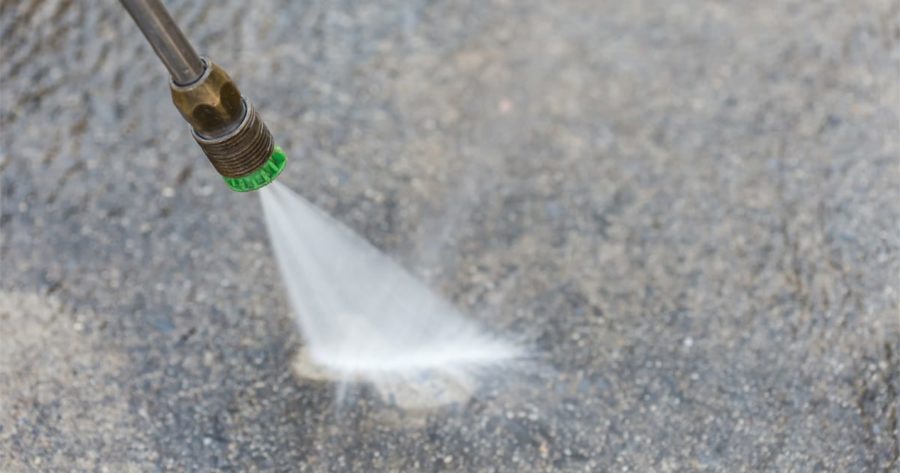
The angle and concentrated intensity of the water sprayed are the most dangerous aspects of pressure washers. The nozzle controls this at the end of the pressure-washer wand. Different pressure washers come with a set of colour-coded interchangeable nozzles or an all-in-one adjustable nozzle; both types let you change the angle of spray vertex of water depending on the task. Adjustable nozzles are more convenient than replaceable nozzles because they can be changed with a twist. On the other hand, replaceable nozzles allow you to customise the spray pattern with different spray angles.
Pressure Washer Safety
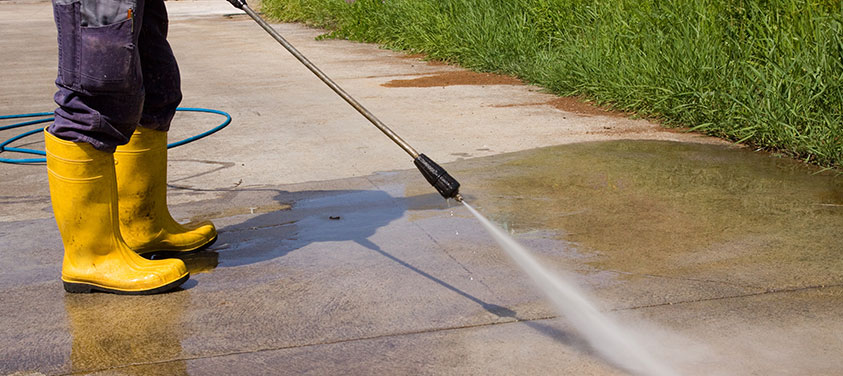
Every year, tens of thousands of people are treated in emergency rooms for injuries caused by pressure washers. The water’s velocity can rip through the skin and tissue beneath it, potentially causing a bacterial infection. A zero-degree spray, produced by a red-coloured replaceable nozzle tip or the lowest setting on an adjustable model, concentrates the full force of water into a pinpoint blast, posing an unnecessary safety risk.
With a wider-angle setting, you can get the same cleaning results- it will take a little longer. No pressure washer with a zero-degree nozzle or setting, regardless of how well it cleans, is recommended by Consumer Reports. If the unit comes with a red, zero-degree nozzle, we recommend removing it and avoiding pinpoint settings to reduce the risk of damaging property or injuring someone.
While all pressure washers are loud, gas-powered pressure washers are noticeably louder. If you’re working near the washer, we recommend wearing hearing protection such as earplugs or earmuff-style headsets. However, the noise shouldn’t be a problem if you stretch out the hose and work far enough away from the washer.



